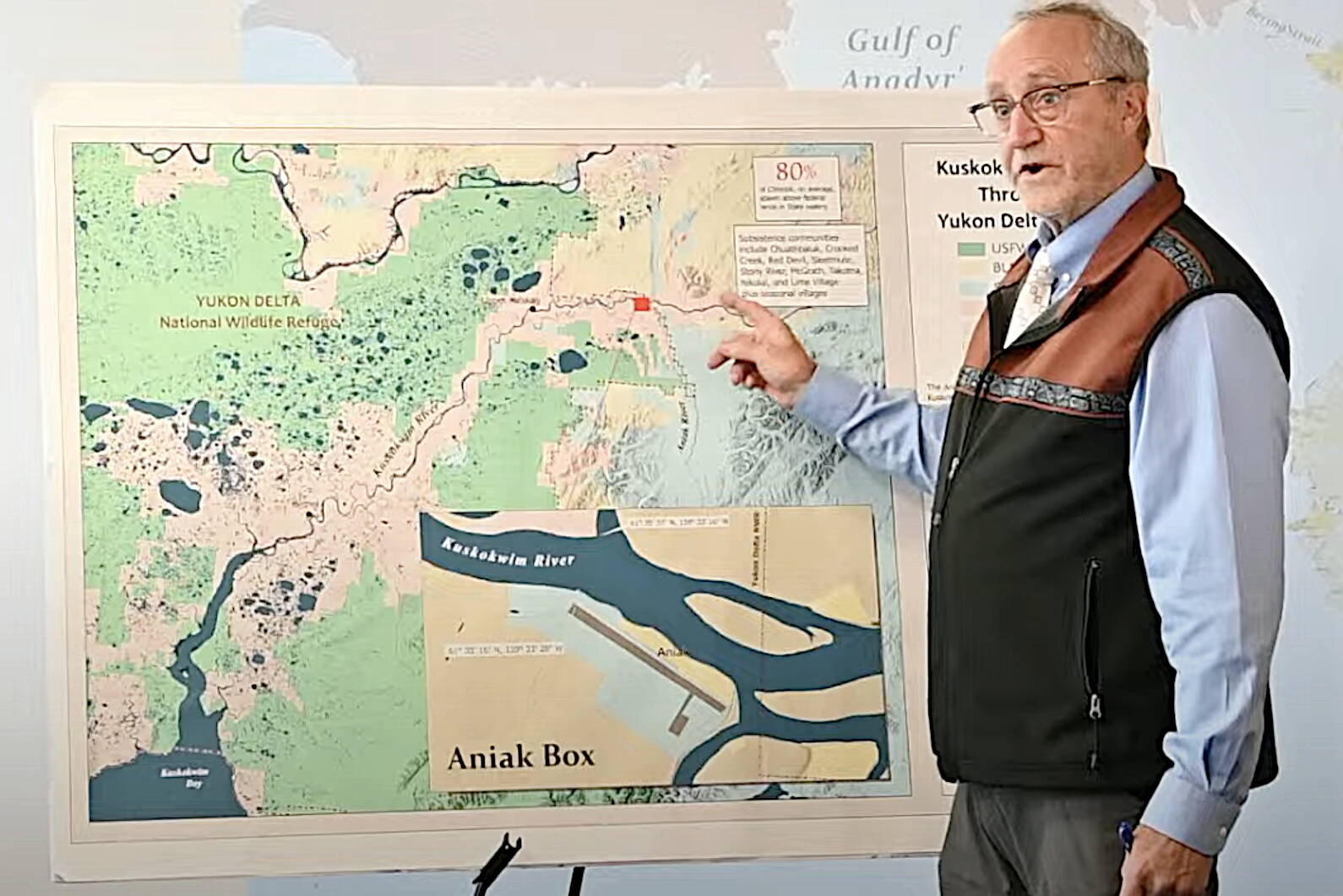The State of Alaska filed a motion for summary judgment Friday to end a federal lawsuit connected to control of salmon fishing on the Kuskokwim River that has turned into a “jurisdiction dogfight,” according to one observer.
Gov. Mike Dunleavy held a press conference Friday with Attorney General Treg Taylor and Doug Vincent-Lang, the commissioner of the Alaska Department of Fish and Game (ADFG), announcing the filing and detailing their case.
“The stakes obviously couldn’t be higher,” said Dunleavy. “We refute that the federal government has the authority to completely supplant and replace state management, and institute their own version of management.”
The federal government sued Alaska’s state government and the Department of Fish and Game in May 2022, alleging it had illegally opened the river to salmon fishing in violation of state and federal laws. The case, United States and Kuskokwim River Inter-Tribal Fish Commission v. State of Alaska, is being heard in U.S. District Court in Anchorage.
The federal lawsuit alleges Alaska violated the Alaska National Interest Lands Conservation Act and the supremacy clause of the U.S. Constitution in usurping authority from the federal government. It began after federal regulators limited access on the Kuskokwim to subsistence fishing. Language differed between the federal and state efforts, with the result of the river being opened to all Alaskans.
The state argues in its motion for summary judgment that the fishery on the Kuskokwim is not “public land” under the state conservation act. It asserts the federal government does not have the right to manage fishery resources for the state, and that certain appointments to the Federal Subsistence Board violate law, and hence have no effect. It also notes recent Supreme Court rulings that lean in its favor.
The case is being watched closely by lawyers as well as environmentalists.
Joe Geldhof, an attorney involved in a separate state court lawsuit about the Kuskokwim and Yukon salmon fisheries, called the lawsuit a “federal-state jurisdictional dogfight.”
“The state is making a good legal argument and one I think they are more likely to prevail on than not,” he said. “It’s a clever argument in the federal court because they are cloaking themselves in how much they care about sustainability, subsistence and fish. When the reality is that their management of fisheries has been mendacious.”
Geldof said the federal management of fisheries hasn’t been much better.
Geldhof represented Juneau resident Eric Forrer in a lawsuit against the state that alleged its management of the river fisheries was so bad as to violate the Alaska Constitution. He said the decline of king and chum has accelerated “on Dunleavy’s watch. And what they do is point to the fact that sockeye are thriving, which has nothing to do with them.”
The Forrer case was dismissed in April and Geldhof said they are appealing.
Fishing on the Kuskokwim and other rivers has been restricted because of low salmon returns. The reason for restrictions is to enable more salmon to return to where they can spawn, increasing the population over the long term.
• Contact Meredith Jordan at meredith.jordan@juneauempire.com or (907) 615-3190.

